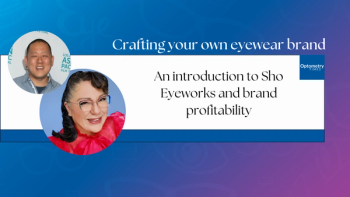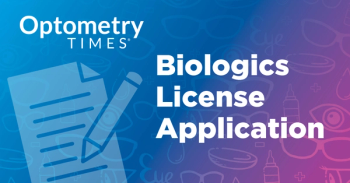A recent press release from Prevent Blindness Ohio (PBO) alerted readers to the availability of free educational resources about glaucoma to patients, care partners, and professionals.
These resources include downloadable fact sheets, glaucoma financial assistance resources, shareable social media graphics, and a dedicated webpage, the organization enumerated.
PBO also offers instruction on how to effectively instill eye drops that includes a downloadable fact sheet presented in English and Spanish, a demonstration video, and a dedicated webpage (PreventBlindness.org/taking-eye-drop-medications).
The Prevent Blindness Focus on Eye Health Expert Series, offered by PBO includes topics on glaucoma that cover:
“Glaucoma and Public Health” with Karen Allison, MD, MBA, FACS, a member of the board of directors of Prevent Blindness and the Chief of Glaucoma, Flaum Eye Institute, University of Rochester.
“Understanding Glaucoma” and “Information and Resources for Glaucoma Patients” featuring Constance Okeke, MD, MSCE, who is a glaucoma specialist at Virginia Eye Consultants, and Assistant Professor of Ophthalmology at the Eastern Virginia Medical School.
“Focus on Eye Health Patient Story: Glaucoma” with Prevent Blindness Associate Director of Eye Health Services, Tasha R. Lockridge, who describes her glaucoma diagnosis and treatment journey.
A recent study1 that provides the prevalence rates of glaucoma in the US also reported the substantial variations in the prevalence rates across demographic subgroups, US states, and counties in 2022. The study was conducted by NORC at the University of Chicago (previously the National Opinion Research Center),Institute for Health Metrics and Evaluation at the University of Washington; Department of Ophthalmology and Visual Sciences, and Institute for Social Research, both at the University of Michigan; Glaucoma Center of Excellence, Massachusetts Eye and Ear; and the CDC’s Vision Health Initiative.
To increase the awareness of the study’s findings, PBO created social media graphics in English and Spanish, and a dedicated webpage.
A video series supporting this study and glaucoma awareness was launched with two presentations: “Why is it important to know how many people have glaucoma?” with Shervonne Poleon, PhD; and “What can help people at risk for glaucoma?” with Mitzi Swift, Clinical Research Coordinator at UAB Department of Ophthalmology & Visual Sciences.
Another free program offered by PBO and Responsum Health is “The Glaucoma Community,” which is described as a comprehensive platform available in multiple languages providing educational glaucoma content, a personalized newsfeed, and the moderated “Community Chat.” The Glaucoma Community is available via a web browser or through a mobile app for Apple or Android users. Members are also encouraged to join the dedicated Facebook group, according to the press release.
To help promote this free resource, The Glaucoma Community Promotional Toolkit, which contains flyers, social media content, and PowerPoint slides, was created for allied healthcare and public health professionals.
Amy Pulles, president and CEO of PBO, said, “Our various glaucoma resources are offered free to the public and professionals to help empower patients with the information needed to work with their eye care professional to help protect vision from the ‘sneak thief of sight.’”
More information and materials on glaucoma can be obtained at PreventBlindness.org/glaucoma, or by contacting Prevent Blindness Ohio at (800) 301-2020 or pbohio.org. For information on glaucoma financial assistance programs in English and Spanish, those interested ca use this link: https://preventblindness.org/glaucoma-help.
Reference:
Ehrlich JR, Burke-Comb Z, Wittenborn JS, et al. Prevalence of glaucoma among US Adults in 2022. Ophthalmology. 2024;142:1046-1053;doi:10.1001/jamaophthalmol.2024.3884











































